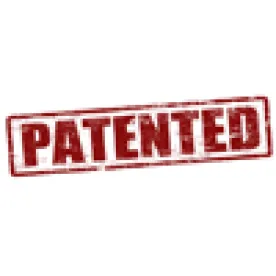The immediate reaction to Great Britain’s June 23, 2016 vote to leave the European Union (“EU”) (commonly referred to as “Brexit”) has been nothing short of hysterical. This paper focuses on what Brexit means for the intellectual property (“IP”) community at large. At present, not much. Now that we are on the other side of June 23, let us take a deep breath and calmly take stock.
What Now?
The United Kingdom (“UK”) will notify the European Council of its decision to withdraw from the EU, pursuant to Article 50 of the Lisbon Treaty, thus initiating the formal process of withdrawal. At first, the referendum will have no immediate effect because of the lengthy two-year transition period that allows for important issues to be sorted out, hopefully, intelligently. Until that process concludes, the UK is still a Member State of the EU and EU law remains in place. Given the complexity of the relationship between the EU and UK, it may be that they will extend the two-year negotiation period until a satisfactory, comprehensive agreement is reached. Ultimately, no IP rights will be lost as a result of Brexit, although some transitional measures are inevitable. For instance, since the UK is no longer part of the EU, English courts will not be required to interpret domestic legislation consistently with EU law and European Court of Justice decisions. UK judges will have greater freedom to depart from pre-Brexit domestic and EU case law, especially where English judges have previously disagreed with the analysis of the European courts, but sought to develop domestic law in line with EU authorities.
Unitary Patent and Unified Patent Court:
The Unitary Patent (“UP”) and Unified Patent Court (“UPC”) were scheduled for February 2017. Brexit may well delay or derail the implementation of the UPC. One problem for the UK stems from the fact that future participation in the UP and UPC is tied to EU membership. Thus, the UK’s exit from the EU may preclude future involvement in the UP and UPC. To allow the UP and UPC to launch by mid-2017, as currently planned, the UK could potentially remain a part of the system while it negotiates its EU exit. The UK may still decide to ratify the necessary treaties.1 On the other hand, since the UPC Agreement must be ratified by 13 Member States, compulsory ratification may fall to the Netherlands or Italy (the two other Member States with the highest number of European patents). Ultimately, when the UP does come into effect, the UK may opt to separately validate the UP and concomitant rights. Since the UP will not cover the UK absent a negotiated agreement, UPC judgments will not extend to the UK. In principle, this means that a successful invalidity action at the UPC would not automatically affect the UK part of a European patent, and that an injunction obtained at the UPC would not have any effect in the UK.
The Intellectual Property Office of the United Kingdon had indicated before the referendum that the UK was pushing ahead with the UPC and UP as planned. The UK seat of the Central Division of the UPC has new premises, and the English Statutory Instrument required to amend the Patents Act to give effect to the UPC Agreement has already been passed. In any event, it is likely that the UPC will require considerable restructuring though and an amended UPC Agreement because, at present, ratification by the UK is a pre-condition and the UK is hosting the life sciences division of the Central Division of the UPC.
European Patents:
The good news: the current process for obtaining European patents at the European Patent Office (“EPO”) is governed by the European Patent Convention (“EPC”), which is not an EU institution. EPC membership is not tied to the EU, so the vote to leave the EU will not impact the UK’s relationship with the EPO. The EPC already covers many countries not in the EU, such as Switzerland, Turkey and Norway. The UK will thus remain a part of the EPC after Brexit, and UK patent protection will be obtainable via a European patent application at the EPO in the same way that it is now – as will EPO oppositions and appeals. The UK’s membership in the Patent Cooperation Treaty (“PCT”) system is also independent of EU membership, and both UK nationalphase filings and European regional-phase filings based on PCT applications will remain entirely unaffected. This means that patent protection in the UK via a European patent will carry on in exactly the same way that it did prior to Brexit. Patent applications filed directly with the UK Intellectual Property Office will be unaffected, as will proceedings for the grant and subsequent validation in the UK of a European patent under the EPC.
Enforcement:
One significant downside of Brexit: enforcement proceedings against infringements will need to be brought separately in the EU and UK, increasing the cost of IP enforcement as a result of the inability of UK courts to grant pan-EU injunctive relief for infringement of community rights which no longer apply in the UK. Likewise, while the effect of Brexit on any previously granted pan-EU injunctions is unknown, it is possible that such injunctions will cease to apply in the UK unless they are supplemented by a UK-specific injunction granted by a national court, which they may, or may not, be compelled to grant. From a practical perspective, European regimes that simplify the service of proceedings and the enforcement of judgments from other European Member States may curtail these measures as they apply to the UK post-Brexit.
Licensing:
For future and existing IP license agreements, when setting territorial scope, parties must now specify the UK separately from the EU as a defined territory. Where previous agreements might have stated ‘Europe,’ care should be taken to clarify whether this means only the EU, or whether the UK and other territories are to be included in the territorial scope. Agreements concerning community-wide IP need to be reviewed to address any divergence between UK and EU law.
Bottom-line:
An IP rights holder or IP practitioner in the UK or EU need not worry immediately post-referendum. Existing community rights will not cease to apply overnight. Due to the complexity of the withdrawal process, there should be a transitional period of at least two years, allowing rights holders to optimize their IP protection and enforcement strategies well in advance. But the planning must begin now. Loss of harmonization and consistency in UK and EU laws may lead to increased legal costs, but this is likely a slowly evolving process, giving IP practitioners and rights holders sufficient time to adapt. Ultimately, there is no sudden change, hence no need for rapid reaction. No rights have been lost immediately and there will be provisions for continuity of protection. But the form of these mechanisms is still unknown.




 />i
/>i
